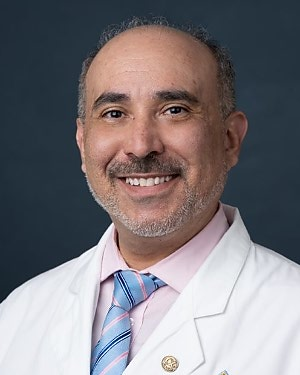Research Lab Results
-
Sharon Turban Lab
Research in the Sharon Turban Lab focuses on the effects of sodium and potassium on blood pressure and on kidney function. We lead the Chronic Kidney Disease-Potassium (CKD-K) clinical trial, funded by American Heart Association, which examines the benefits and safety of two levels of potassium intake in patients with kidney disease. Other research includes the Chronic Renal Insufficiency Cohort (CRIC) study, which aims to improve the understanding of chronic kidney disease and related cardiovascular illness.
-
Obesity Hypertension Clinic: Reversing the Negative Cardiovascular Effects of Weight (ReNEW)
Hypertension in children is a major cause of disease, including early onset heart disease. Up to 25% of children who are overweight or obese have hypertension (high blood pressure), and children with obesity are at greater risk for having other cardiovascular disease risk factors such as high cholesterol and diabetes. The ReNEW Clinic at The Johns Hopkins University provides an innovative multidisciplinary approach to the evaluation and treatment of obesity-related hypertension to help prevent and treat cardiovascular disease. This clinic is designed for children with elevated blood pressure (prehypertension and hypertension) and a BMI at or above the 85th percentile. Many children in this clinic are enrolled in a longitudinal registry to help researchers learn how to better care for children with multiple risk factors for heart disease.Read more about the ReNEW clinic: Childhood Obesity: A Focus on Hypertension
-
Romsai Boonyasai Lab
Research in the Romsai Boonyasai Lab focuses on systems-based approaches for improving health care quality, including reducing harm during care transitions after hospital discharge and improving outcomes related to hypertension and other chronic diseases. We recently have focused on developing and evaluating practice-based tools for improving the accuracy of blood pressure measurement, overcoming clinical inertia to treatment, and engaging patients in self-management of their health. -
Peter Abadir Lab
Research in the Peter Abadir Lab focuses on the renin-angiotensin system (RAS), a signaling pathway that regulates blood pressure and has been linked independently to both aging and inflammation. We’re particularly interested in changes in RAS that occur with aging. We also study signal transduction and the role of the crosstalk between angiotensin II receptor in aging and are interested in understanding the function of angiotensin II in the process of vascular aging.
-
Hsin-Chieh Yeh Lab
Work in the Hsin-Chieh Yeh Lab focuses on clinical trials and cohort studies of diabetes, obesity and behavioral intervention, cancer and hypertension. Recent investigations have focused on novel risk factors and complications related to obesity and type 2 diabetes, particularly lung function, smoking and cancer. We recently co-led a randomized clinical trial of tailored dietary advice for consumption of dietary supplements to lower blood pressure and improve cardiovascular disease risk factors in hypertensive urban African Americans.
-
Machine Biointerface Lab
Dr. Fridman's research group invents and develops bioelectronics for Neuroengineering and Medical Instrumentation applications. We develop innovative medical technology and we also conduct the necessary biological studies to understand how the technology could be effective and safe for people. Our lab is currently focused on developing the ""Safe Direct Current Stimulation"" technology, or SDCS. Unlike the currently available commercial neural prosthetic devices, such as cochlear implants, pacemakers, or Parkinson's deep brain stimulators that can only excite neurons, SDCS can excite, inhibit, and even sensitize them to input. This new technology opens a door to a wide range of applications that we are currently exploring along with device development: e.g. peripheral nerve stimulation for suppressing neuropathic pain, vestibular nerve stimulation to correct balance disorders, vagal nerve stimulation to suppress an asthma attack, and a host of other neuroprosthetic applications. Medical Instrumentation MouthLab is a ""tricorder"" device that we invented here in the Machine Biointerface Lab. The device currently obtains all vital signs within 60s: Pulse rate, breathing rate, temperature, blood pressure, blood oxygen saturation, electrocardiogram, and FEV1 (lung function) measurement. Because the device is in the mouth, it has access to saliva and to breath and we are focused now on expanding its capability to obtaining measures of dehydration and biomarkers that could be indicative of a wide range of internal disorders ranging from stress to kidney failure and even lung cancer.



